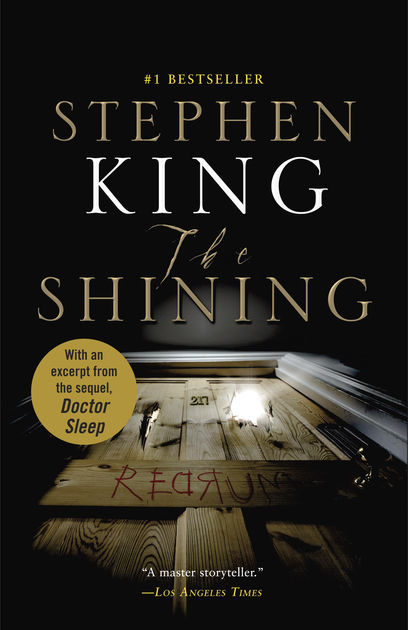‘The Shining’ Pales in Comparison to Modern Thrillers
August 22, 2017
“This inhuman place makes human monsters.”
Stephen King has been making a career out of scaring his readers from their seats since 1967, and so when I decided to read The Shining this summer, I realized I had jumped on the bandwagon a couple of decades late. King’s success as a horror writer can be traced back to this book; it was a hit bestseller, and only the third of the 54 books he would eventually write.
Jack Torrance is a high school debate teacher who struggles with alcoholism and anger-management. At the beginning of the book, he has been fired from his teaching job for injuring a student. These problems seep into his home life as well — his wife, Wendy, is considering a divorce after he drunkenly dislocated the shoulder of his 5-year-old son, Danny. In need of a fresh start, he accepts a seasonal job as the caretaker for the Overlook Hotel, which is closed to the public every winter. The family looks forward to their new life until Danny begins to have horrifying premonitions about past events that have happened in the hotel. These visions become all too literal for Jack during his season at the hotel, and whether they are ghosts or simply manifestations of Jack’s struggles with alcoholism is left for the reader to decide.
King has a knack for original and creative use of voice that served the story well. Although written in the third person, the passages became more and more frequently interspersed with interjections from the ghosts (written in parentheses) as the book went on. It was appropriately unsettling. However, I’m afraid to say that’s just about where my praise ends. For the amount of acclaim it received, the book struck me as unfortunately average. It was an incredibly slow read — 300 pages in, and not much had happened yet except for backstory and exposition. As a character study, the novel was incredible: the care and dedication with which Jack’s history and motivations are revealed to the reader are second to none. But, it fell short as a horror story. With the exception of two scenes, the book failed to scare or even surprise me. King uses many words to show us very little, and because of that, the morals and messages the book tried to convey came as forced and over-explained. It feels as though he didn’t give his readers credit for being able to interpret the material for themselves. Because of this, many of the motifs and metaphors in the narrative were obvious, over-simplified, and cheesy, except for what is perhaps the most important theme throughout the work: are readers supposed to be afraid of malevolent ghosts, or of the destructive nature of alcoholism? I admired the inclusion of both possibilities, but I found myself wishing King would just choose one.
Despite the negatives I’ve listed above, the book was a pleasant, easy read, and I would still recommend it as a summer scare. A word of advice: don’t read it near any bathtubs. Why? Well, you’ll just have to find that out for yourself.



